Sgt. Maj. of the Army Michael Grinston has taken on a unique mission, trying to convince an Army built on uniformity, drills and common procedure to embrace its many differences.
The 53-year-old native of Jasper, Alabama, who became the 16th sergeant major of the Army in August 2019, seeks to change Army culture in a move he believes will create stronger and more cohesive teams, from the squad level on up.
In an interview, Grinston acknowledged the undertaking may be difficult, but the task isn’t hard to understand. The Army needs to define the culture it finds acceptable, then stick to it, he said. That means acting when something happens outside the cultural norm. “When my children go to school and the teacher tells them [they] didn’t bring their homework, do I say, ‘I guess you should do your homework,’ or do I call the teacher and say it is the teacher’s fault?” he said as an example. “That is the culture I’m trying to get back, where we’re responsible not just as an individual, but as a group.”
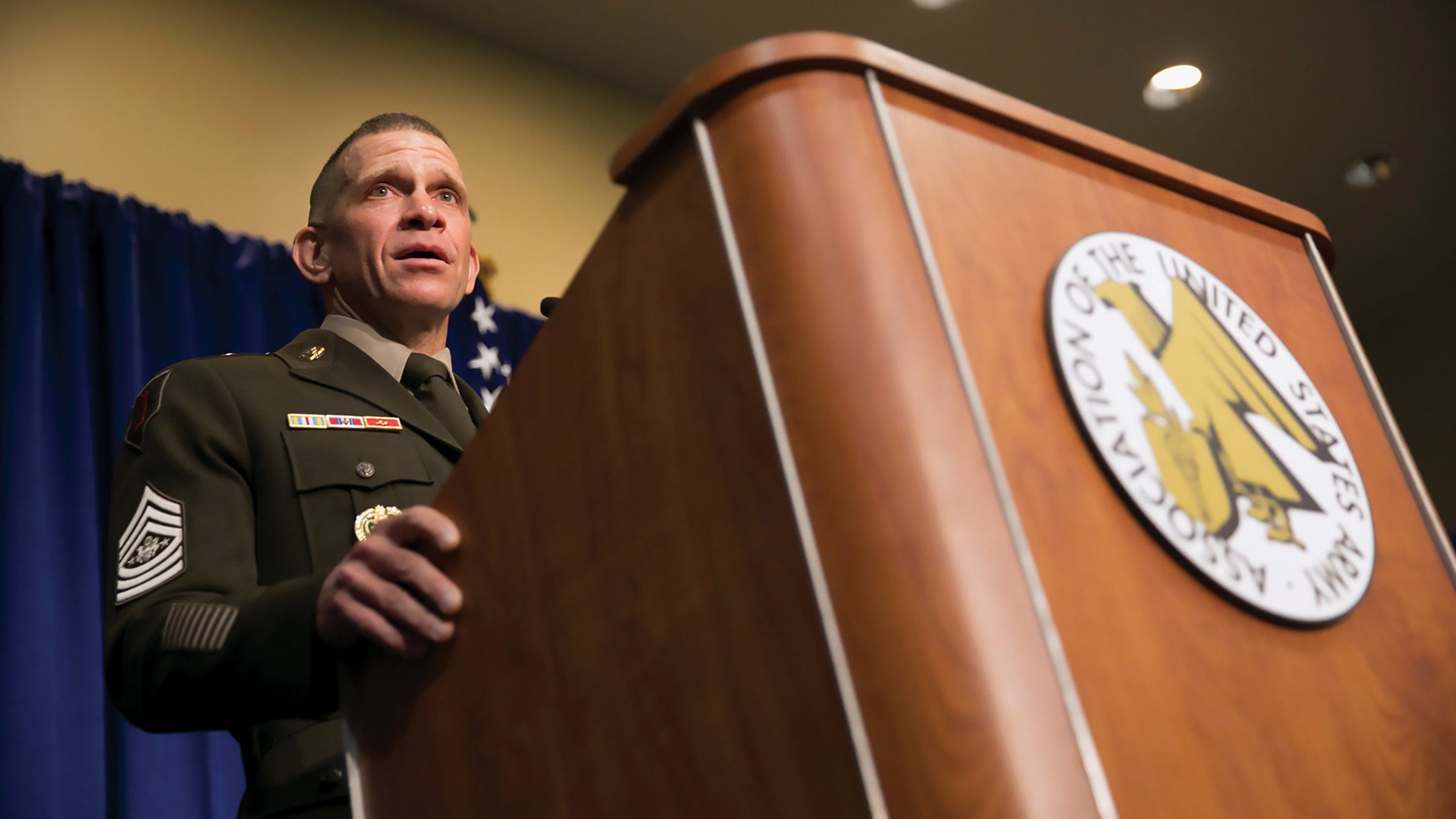
“I have said this a couple of times, and I still think it is so true. We can write all of the policies you want, but without either a good leader or a good culture, this is going to be just a piece of paper,” he said.
“I’m trying to get us to a point where we care,” Grinston said. “It doesn’t mean I have to be nice to everybody. It is just that whole community of caring by everybody.”
Avenue for Outreach
Grinston sees listening and communicating as big parts of his job, which is why he is active on social media compared with his predecessors. “Why wouldn’t we want to hear their feedback?”
“This is what the sergeant major of the Army should do. You want them to take on hard topics. You want them to take on these issues and not ignore it. That is what I expect for myself,” he said.
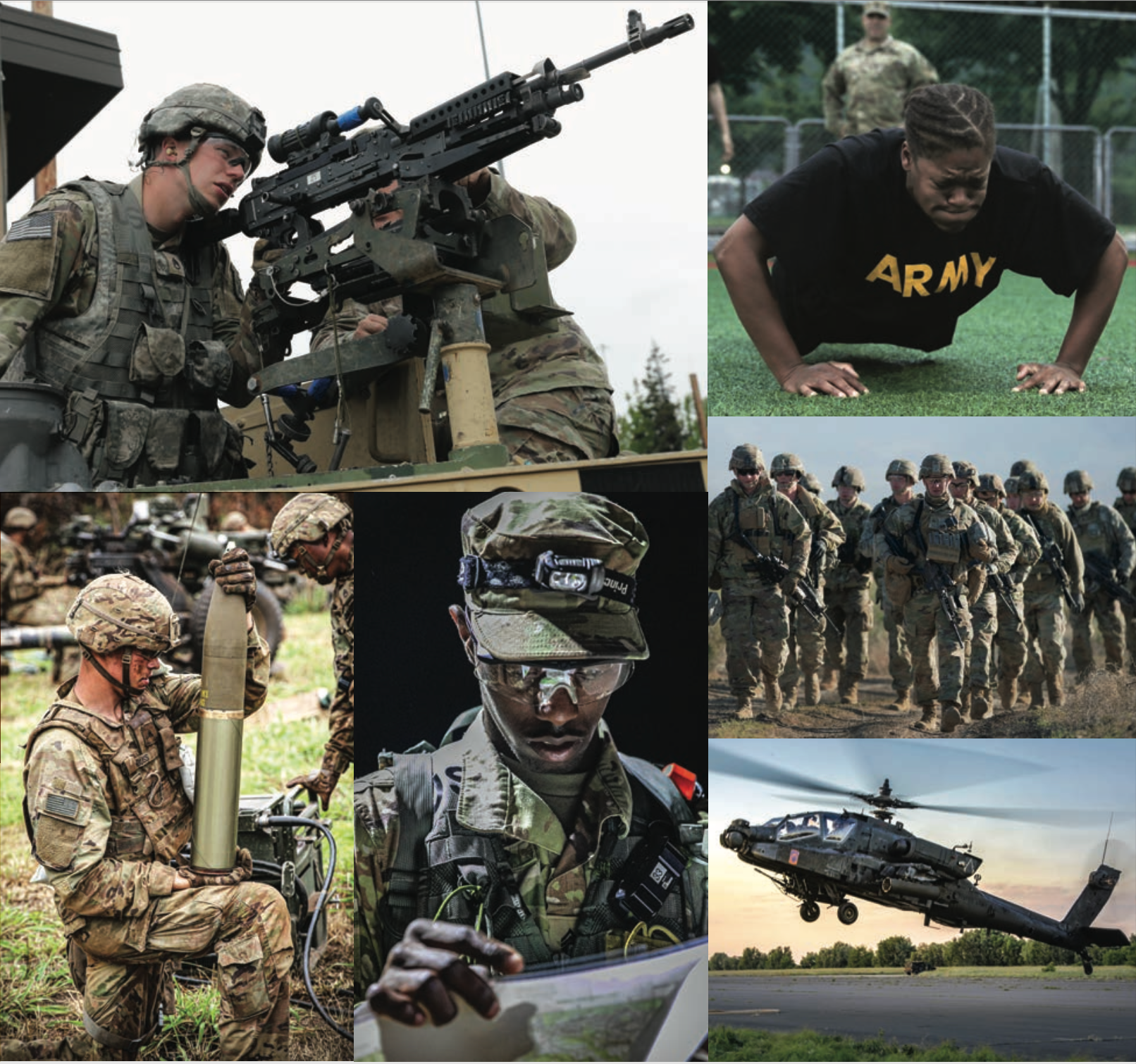
Before social media, enlisted leaders kept in touch with visits to the motor pool where soldiers are “sweeping and complaining the whole time, just nonstop, but you are still sweeping,” Grinston said. Communicating on social media isn’t that different than visiting the motor pool. “You’ve got to ask questions, and you’ve got to be open to feedback. Maybe we get some great new idea that we didn’t think about,” Grinston said.
Changes in the Army’s policies for postpartum women are an example of an issue first raised on social media. Because of comments it received, the Army has extended the timeline for meeting body fat standards, from six months to a year. Some changes in grooming standards, such as relaxing hair regulations to allow women to have ponytails, also resulted from soldier feedback, he said.
He wants people to know they have a voice, and “we do our best to listen.” That isn’t a promise to change. It is a promise to listen.
Grinston said he gets “a lot of positive feedback” that convinces him he’s on the right track. “That culture thing is hard,” he said. “I am not saying everybody is always going to agree to do this, but I would say the preponderance, the group, the main body, says this is how we operate.”
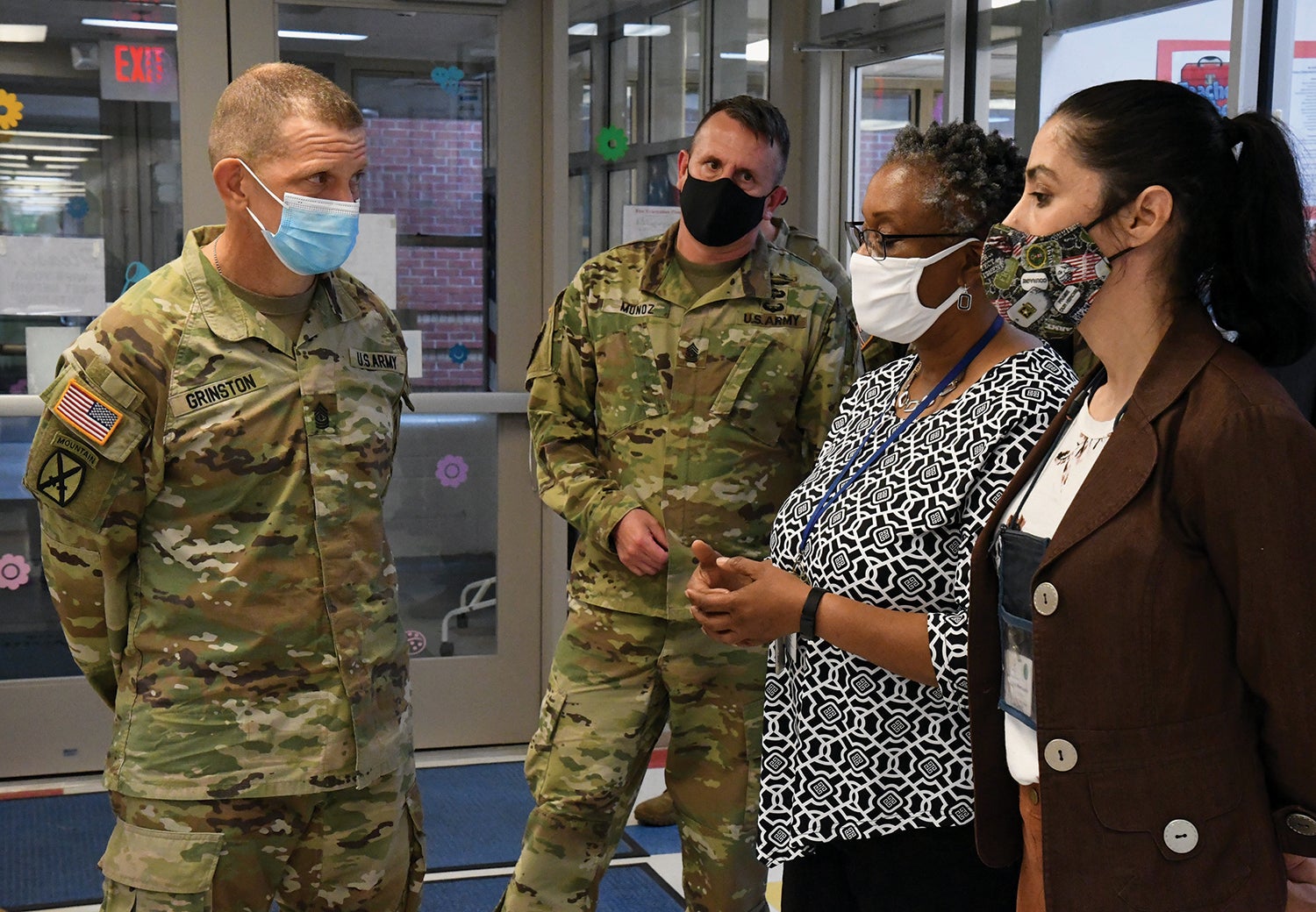
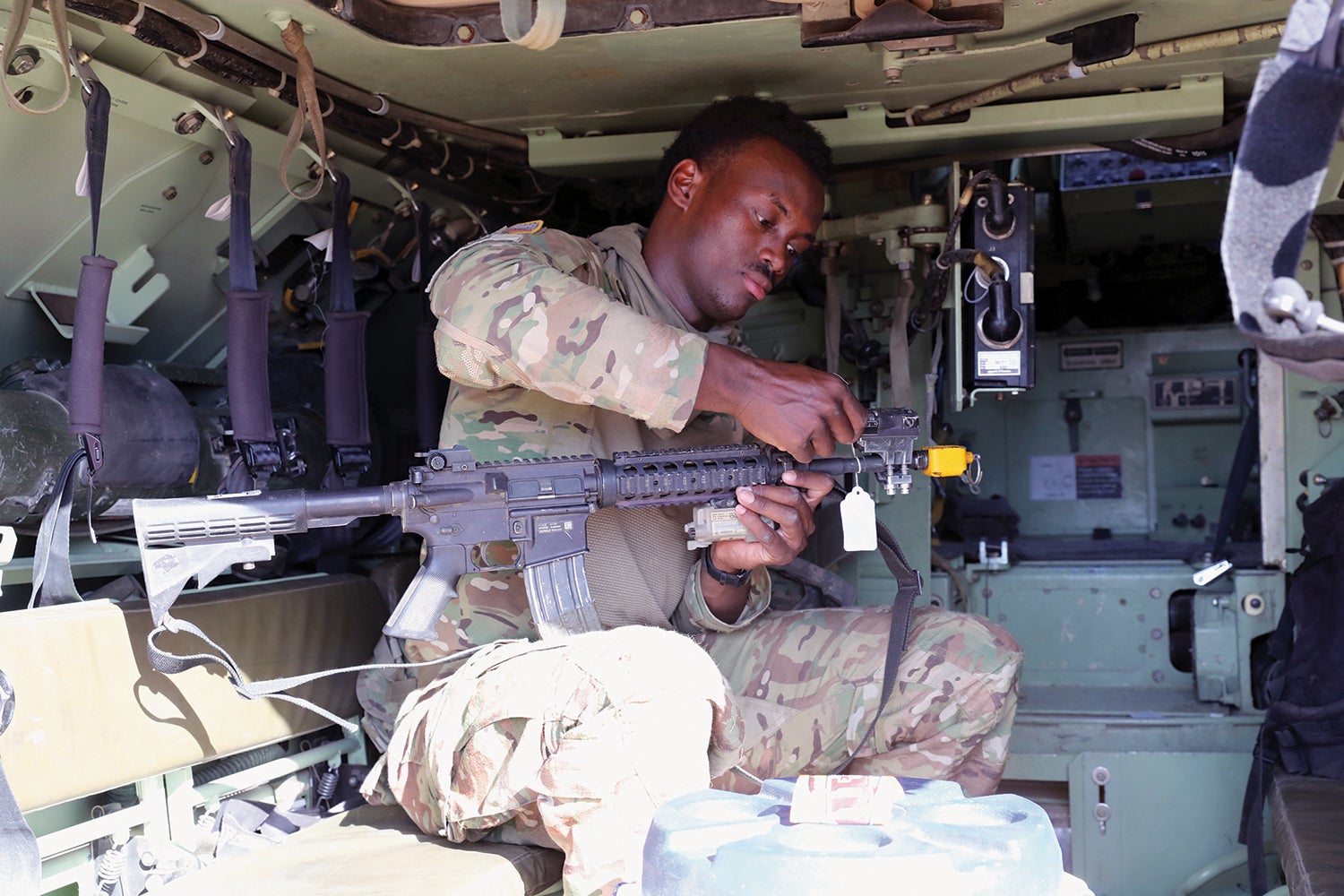
Higher Standard
This is a bottom-up effort to build cohesive and self-correcting teams, where soldiers hold each other to higher standards and aren’t afraid to take an active role in preventing bad conduct, especially sexual harassment and assault, discrimination and other issues that hurt the team’s performance, he said.
“Nobody has ever done this before,” Grinston said. “We have a large organization, it is worldwide, it has a million-plus folks, and we are trying to change the culture.”
Grinston, who enlisted at the age of 19 largely because of the cost of college, said he quickly adapted after getting over the shock of being yelled at by drill sergeants for 20 minutes after arriving at basic training. “I was like any soldier coming in,” he said. “You clearly didn’t know what you are getting into, but I can say that about a whole bunch of things I’ve done in my life. It wasn’t a big culture shock for me.”
Raised by a single mother with one sister in the house, Grinston said he was used to doing what others told him to do without complaint. “They ruled the house,” he said.
He took to the Army without much trouble. “Over time, I got used to it,” he said, believing he was like any other private discovering there was a lot about the Army he never expected but nothing he couldn’t handle. “It was just something that was different.”
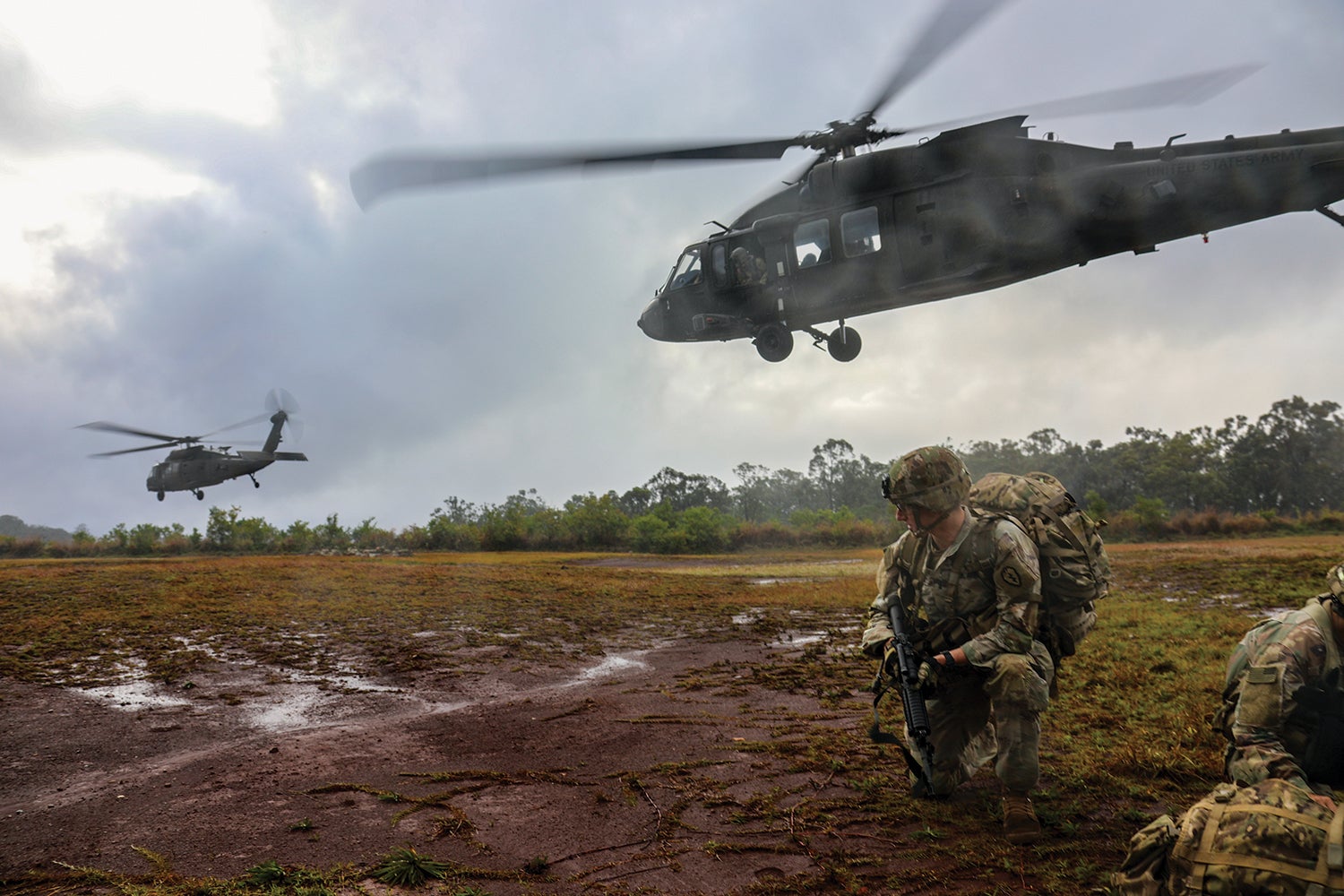
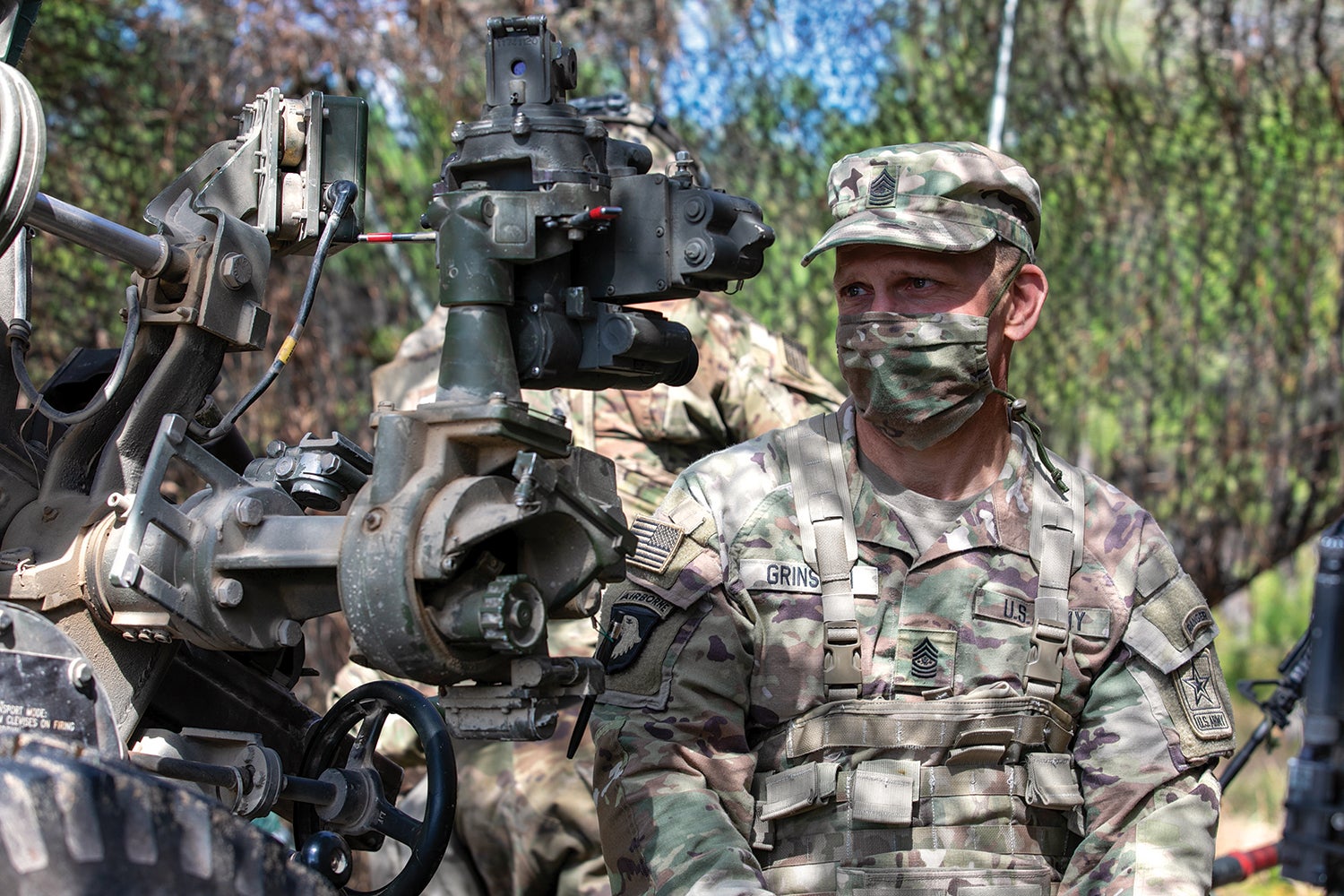
‘How We Operate’
Grinston felt the Army was slowly changing for the better during his early years in uniform. “I’m not saying it is worse now,” he said, but the presence of combat-experienced senior NCOs provided a feeling of working with quality leaders. “I can say I actually saw the NCO corps get better, and the culture changed for the better,” he said, describing the years from 1987 to about 1990.
“We need to change some things and how we operate, given the environment we have now,” he said. “It isn’t like we need to go back to what we had in 1987. This is more about where we are at now and the culture that we need to display as the Army in 2021.”
Depending on how you define culture, Grinston was present during two big milestones: the 1993 movement allowing homosexuals to serve under the “don’t ask, don’t tell” policy, and the lifting of combat assignment restrictions for women in 2013.
He recognizes these were big adjustments. “I don’t really see those as a cultural change,” Grinston said. “To me, those are policy changes that I, we, didn’t really see that much of effect in the Army,” he said of removing restrictions on service by women and homosexuals. “That was about who comes in the Army and how we treat them.”
Grinston said he hopes to start seeing examples of people speaking up. Visiting an installation he didn’t want to name to do physical training with soldiers, Grinston said he watched as a faux pas was committed by having troops fall out before coming to attention. “The whole group was at parade rest. The platoon sergeant goes, ‘Well, fall out,’ and everybody moves. The only person that made the correction was the sergeant major of the Army,” he said, expressing consternation with the failure. He queried them about proper orders, and they appeared to know it was a mistake but did it anyway.
“If a platoon sergeant made a mistake, I want the whole group not to move. That is the culture I’m trying to change. It sounds so simple, but I was the only one there that said, ‘Stop. Go back,’ ” he said. “I told them to do a few pushups and then go back into formation and do it right. They all should have known. They all know the rules.”
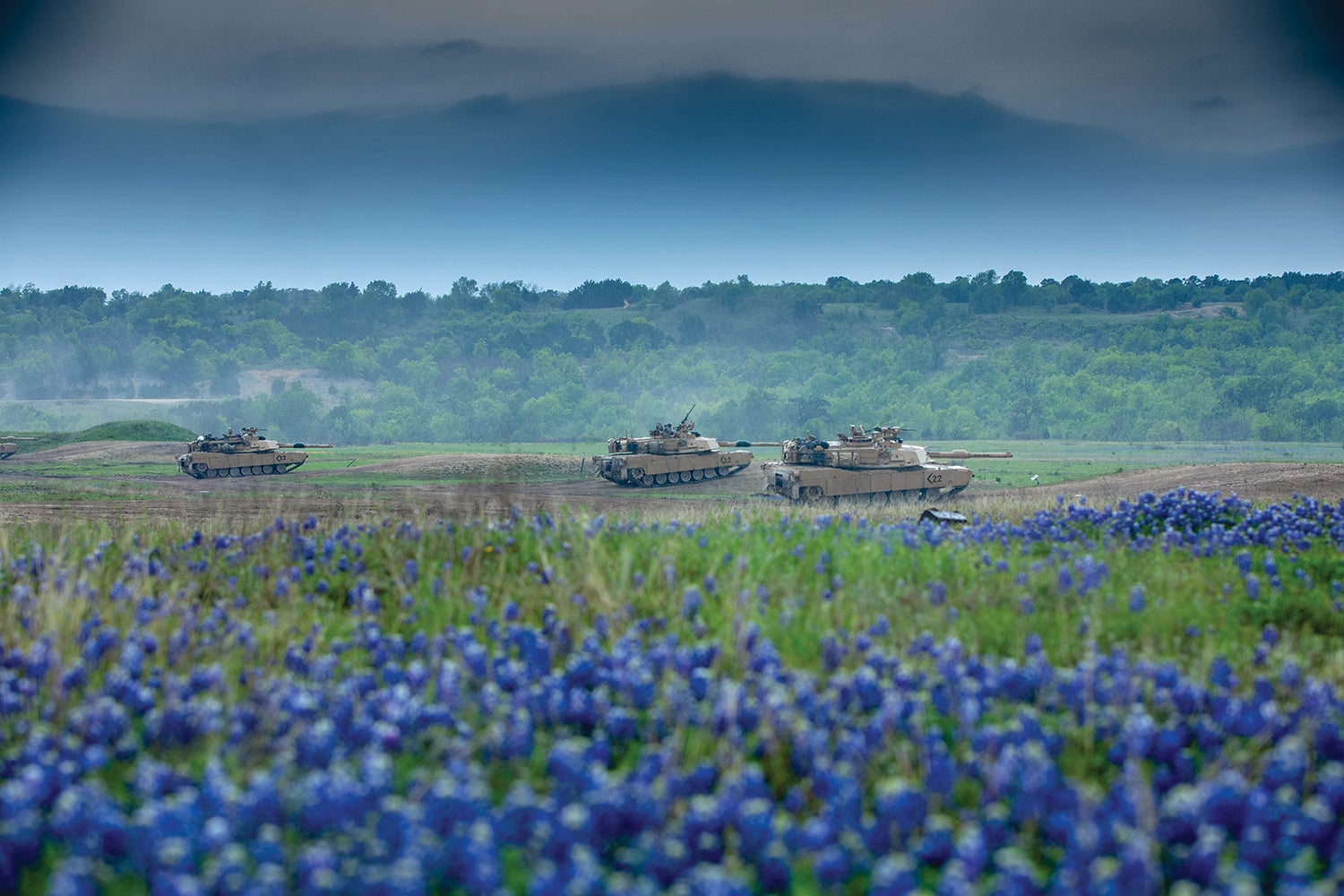
Laying the Groundwork
Culture change “is not as simple as it sounds. It briefs well … but in practice, it is extremely hard,” he said. While laying the groundwork now for a shift from thinking about individual actions to group action, Grinston said he’s received notes and phone calls thanking him for convincing leaders to pay more attention to their soldiers. He’s confident he’s doing the right thing, but he’s not certain how long it might take to move an Army of about 485,000 active, 336,000 National Guard and 188,000 U.S. Army Reserve troops.
He thinks he is having an impact. Younger soldiers, he said, “are brutally honest, sometimes a bit more honest than I want, but I’ve got to be receptive to what they are saying, and they tell me I’ve been asking the right questions.” He’s less certain sergeants major will be honest, trying instead to guess what he wants to hear.
Grinston said he’s asked soldiers if they share his goal or think he’s just visiting to check a box. Depending on the location, he sometimes is treated with skepticism, but “I think you’ve got to be willing to ask yourself the hard questions if you really want good feedback. When I’ve done that, that is where I am starting to see I’m making a difference at the right level.”
He sees this as a long campaign, one he might not be able to finish during his time as the Army’s top enlisted soldier. “Unfortunately for me, I think it is going to take a couple more years, and maybe even beyond me. I am just hoping whoever comes behind me still believes we have got to make sure we get the culture right.”
His next step is to hold conferences and forums with a wide range of soldiers to focus on how to improve the climate, and he’ll be talking with nominative sergeants major.
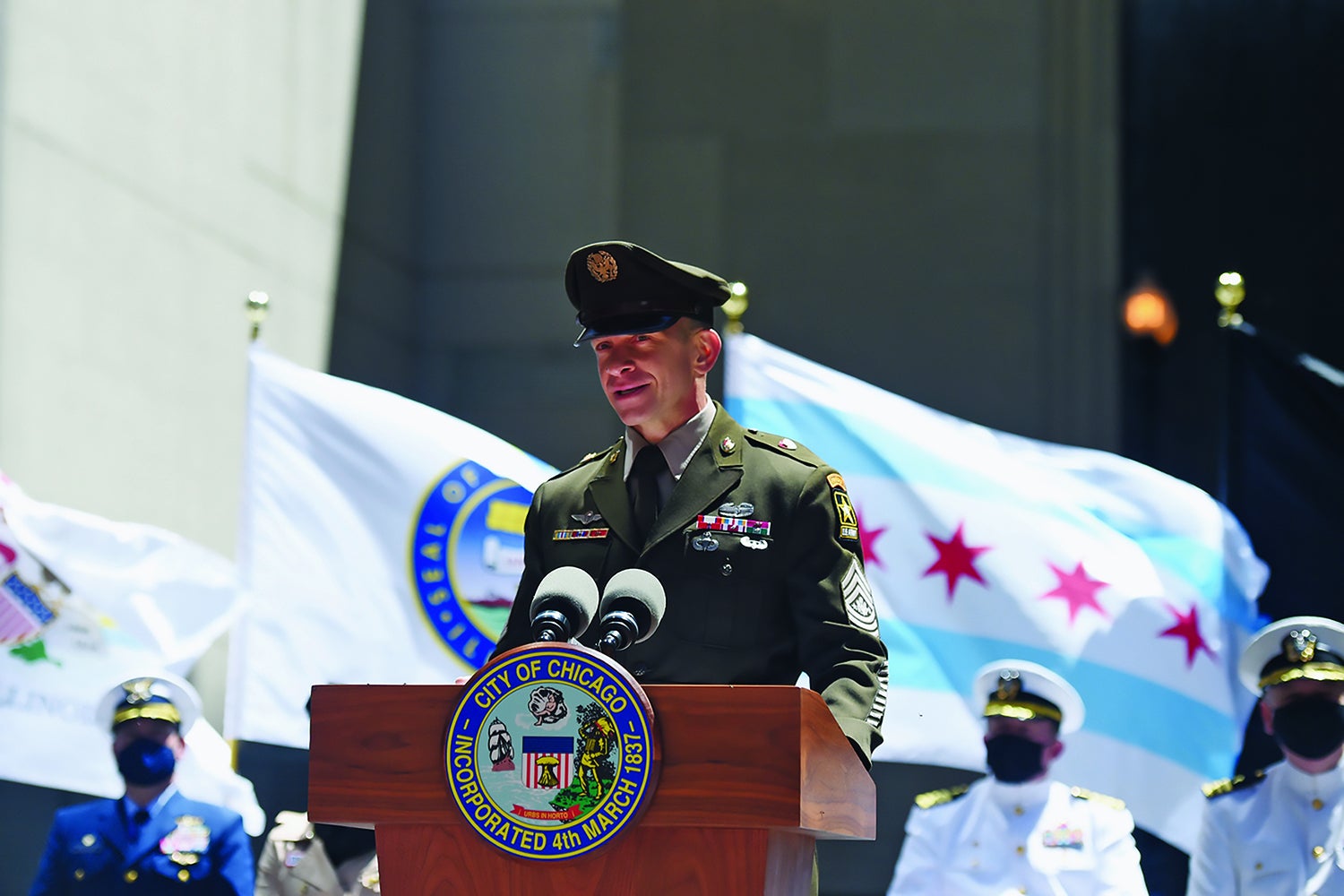
Reaching Into the Ranks
The immediate way forward is pushing the message to lower ranks, he said. “The corps, the division, and maybe the brigade really get it, but how do we get this down so that [this] is not the sergeant major of the Army’s initiative, but this is the culture of the Army?” he said. “It starts from the exactly opposite of me. It is not me. It is the sergeant, the staff sergeant, the platoon sergeant.”
The effort will include breaking the ceiling to get ideas down “to the unit that really needs it, and for them to believe in it.” At every level of command, people should feel responsible for forming cohesive, highly trained teams, he said. “We need to get this culture all the way down to the sergeant and staff sergeant.”
“I think we have momentum, but I want it to be irreversible momentum that is an enduring way on how we treat each other with dignity and respect.
“If it was easy, somebody else would have done it already,” Grinston said, a phrase that has become a mantra for him. “When communicating with soldiers, we can’t ignore these big issues. When we see something that’s really hard, we take that head-on.”
Victory in this campaign won’t be quick, he said, describing it like weight loss that happens a little over time. “If you are asking me about my happy place, that will be three years from now, when I’m not the sergeant major of the Army, but we are not talking about sexual assault and sexual harassment and suicide, not because we won’t talk about it, but because they don’t really exist that much.”

